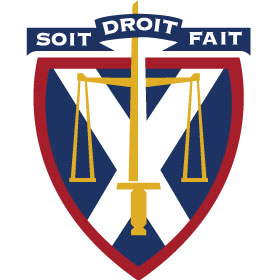In this episode of Queen’s Pro Bono Radio, host Andrei Uzumtoma dives into the murky legal waters surrounding psilocybin, the psychoactive compound in magic mushrooms. Despite being illegal under the Controlled Drugs and Substances Act, mushroom dispensaries are cropping up across Canadian cities. So what gives?
Through an exploration of the relevant law, Andrei breaks down the penalties for possession, production, and trafficking psychedelics. This episode also explores two key court cases—Hartle v Canada, which challenges the constitutionality of denying psilocybin to terminally ill patients, and R v Brown, where psychedelic intoxication collided with criminal liability and prompted major reforms to Section 33.1 of the Criminal Code.
By examining recent legal developments and their broader context, Andrei highlights the legal questions and access-to-justice issues raised by Canada’s changing drug policy environment.
Are magic mushrooms Canada’s next legalization frontier? And what’s at stake for those seeking relief and accountability?
Andrei Uzumtoma – Producer, Host, Editor
Music by MorningLightMusic – Free YouTube / Non-Copyright background music
Pro Bono Radio is part of the Queen’s chapter of Pro Bono Students Canada. The Pro Bono Radio team are not lawyers, and this is not legal advice.
Subscribe to this podcast on Apple Podcasts, Google Play, Spotify and Stitcher!
Research Referred to in the Podcast:
Canadian Press Staff, Experts Doubt Whether Illegal Magic Mushroom Stores Will Advance Drug Policy, CTV NEWS (July 13, 2023), online: https://www.ctvnews.ca/montreal/article/experts-doubt-whether-illegal-magic-mushroom-stores-will-advance-drug-policy/.
Canadian Public Health Association. (2023). Forum on a Public Health Approach to Psychedelics: Summary Report.
Controlled Drugs and Substances Act, SC 1996, c 19
Hartle v Canada (AG), Federal Court, filed 2022
Jacobs, E., Earp, B. D., Appelbaum, P. S., Bruce, L., Cassidy, K., Celidwen, Y., … Yaden, D. B. (2024). The Hopkins-Oxford Psychedelics Ethics (HOPE) Working Group Consensus Statement. The American Journal of Bioethics, 1–7.
MacBride, K. (2023). “How Psychedelic Hype Is Hurting More People Than We Realize,” Daily Beast (Nov. 25, 2023).
Mike Hager, Magic Mushroom Stores Are Popping Up in Vancouver, Hoping to Open the Doors To Legalization, THE GLOBE AND MAIL (February 24, 2023), online: https://www.theglobeandmail.com/canada/british-columbia/article-magic-mushroom-stores-vancouver/.
Monika Bar & Marc Z. Goldgrub, State of Canadian Psychedelic Law – 2024 Report (Toronto: Green Economy Law Professional Corporation, December 2023), online: https://www.psychedeliclaw.ca.
Monika Bar, Emma Pandy-Szekeres & Marc Z. Goldgrub, State of Canadian Psychedelic Law – 2025 Report (Toronto: Green Economy Law Professional Corporation, January 2025), online: https://www.psychedeliclaw.ca.
Nutt, D. J., King, L. A., & Phillips, L. D. (2010). Drug harms in the UK: a multicriteria decision analysis. Lancet, 376 (9752), 1558–1565.
“Psychedelic Medicines 2024 – Canada: Trends and Developments” (2024) Chambers Practice Guides, online: https://practiceguides.chambers.com/practice-guides/psychedelic-medicines-2024/canada/trends-and-developments
R v Brown, 2022 SCC 18.
Rush, B., Marcus, O., Shore, R., Cunningham, L., Thompson, N., & Rideout, K. (2022). Psychedelic medicine: A rapid review of therapeutic applications and implications for future research. Homewood Research Institute.
Saira Peesker, Magic Mushroom Store Previously Shut Down by Police Is Back Open in Hamilton’s East End,CBC NEWS (June 1, 2023), online: https://www.cbc.ca/news/canada/hamilton/mushroom-cabinet-open-1.6859604.
Sean Lawlor, Psychedelic Exceptionalism and Reframing Drug Narratives: An Interview with Dr. Carl Hart, PSYCHEDELICS TODAY (accessible at https://psychedelicstoday.com/2020/02/18/psychedelic-exceptionalism-and-reframing-drug-narratives-an-interview-with-dr-carl-hart/).
Podcast: Play in new window | Download
Subscribe:



